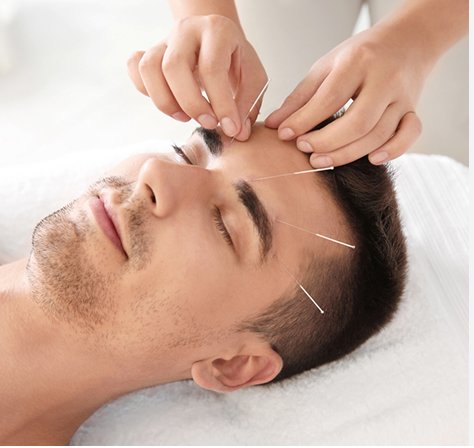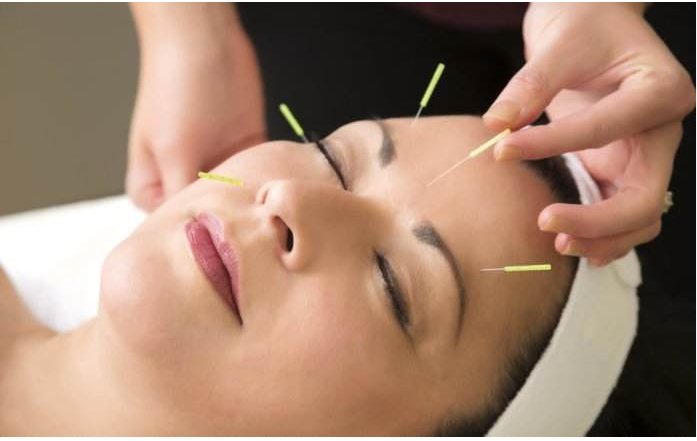Migraines, more than just intense headaches, significantly affect over 10% of people worldwide. Triggered by factors such as stress, diet, and environmental changes, migraines can disrupt daily life. Amidst various therapeutic approaches, acupuncture, a traditional Chinese medicine practice, is one of the emerging contenders. Acupuncture for migraines offers a holistic approach to relief, targeting specific body points to reduce pain and frequency.
In this blog post, we delve into the question: “Could Trying Acupuncture for Migraine be a Drug-Free Solution?” We will examine the existing research, shed light on acupuncture’s potential mechanisms, and discuss the practical considerations for those contemplating this ancient practice as a complementary approach to managing migraines.
What is Migraine?
Migraine is a neurological condition characterized by intense headaches that typically affect one side of the head. Migraine goes beyond a simple headache and can profoundly affect a person’s quality of life. It is a common condition affecting more than 10% of people worldwide. The prevalence is higher among women.
Factors That Trigger Migraine?
Migraine triggers vary widely and play a crucial role in the onset of an attack. These triggers include stress, sleep disturbances and irregularities, diet, alcohol, weather changes, and environmental factors like bright light. Each of these elements can significantly influence the occurrence of a migraine.
Stress
Stress exacerbates migraine symptoms by activating various physiological responses in the body. When stressed, the brain releases chemicals that can cause vascular changes and potentially lead to migraines. This makes stress management a key element in controlling the frequency and severity of migraine attacks.
Sleep Disturbances and Irregularities
Sleep disturbances and irregularities can disrupt the body’s natural rhythms and lead to the onset of migraine attacks. Both too little and too much sleep can cause problems. Ensuring consistent and adequate sleep helps reduce the frequency and severity of migraines.
Diet
Certain foods and irregular eating habits trigger migraines. Irregular eating habits and skipping meals lead to migraine onset. Diet contributes significantly to reducing the frequency and severity of migraine attacks.
Alcohol
Alcohol causes blood vessel changes in the brain that can lead to a migraine attack. For some individuals, even small amounts of alcohol can trigger symptoms, while others may experience migraines after consuming larger amounts.
Weather Changes
Weather changes—extreme weather conditions and changes in temperature or humidity—are all triggers for migraine attacks. For individuals who are sensitive to weather-related triggers, being aware of weather forecasts and planning accordingly is useful for managing their attacks.
Environment: Bright Light
Exposure to intense or flickering light, including sunlight and fluorescent light, can provoke migraine attacks in susceptible individuals. This reaction is due to the sensitivity of the brain’s pathways in migraine sufferers, where bright light can cause overstimulation.

How Do You Get Rid of a Migraine ASAP?
A variety of methods are effective in relieving migraines quickly, such as resting in a dark and quiet room, taking painkillers, and applying cold compresses. Among these, acupuncture for migraine has recently come to the fore as a powerful alternative.
Acupuncture for headaches and migraines involves the strategic placement of needles to reduce pain and the frequency of attacks. This ancient technique is gaining popularity for its ability to stimulate the body’s natural pain-relieving mechanisms and offers a
Non-pharmacological option for those seeking immediate migraine relief.
How Does Acupuncture Work for Migraines?
Acupuncture for migraine headaches helps reduce the frequency and severity of migraines by stimulating specific points in the body. Research shows that acupuncture may be more effective than some conventional treatments and is a good option for migraine relief.
What is Acupuncture?
Acupuncture is a traditional Chinese medicine practice that involves inserting thin needles into specific points on the body to alleviate pain and promote healing. This technique, used for thousands of years, is based on balancing the body’s energy flow, known as qi. In modern terms, acupuncture stimulates nerves, muscles, and connective tissue, boosting the body’s natural painkillers and increasing blood flow. It’s increasingly recognized in Western
medicine for its effectiveness in treating various conditions, including headache acupuncture and acupuncture therapy for migraines.
How Successful is Acupuncture for Headaches?
Acupuncture has shown remarkable success in treating headaches, including migraines. Research shows that acupuncture for headaches can significantly reduce the frequency and severity of pain in migraine attacks. These findings emphasize the effectiveness of acupuncture treatment for migraine, which offers a promising alternative for those seeking relief from migraine pain.
Is Head Acupuncture Safe?
Yes, head acupuncture is safe, especially when a trained and licensed practitioner performs it. Acupuncture for migraine prevention helps reduce migraine frequency and severity with minimal risks.
What are the Acupuncture Points for Migraine?
Specific acupuncture points for migraine relief are GB20 (located on the back of the head), GB8 (on the head), SJ5 (on the forearm), GB34 (near the knee), BL60 (on the ankle), SI3 (on the hand), LI4 (on the hand), ST44 (on the foot), LR3 (on the foot) and GB40 (near the ankle). Acupuncturists choose these points to release blocked energy, stimulate nerves, and improve blood circulation, effectively relieving migraine pain.
What is the Best Acupuncture Point for Migraines?
The best acupuncture spot for migraines is LI4 (located on the hand) or GB20 (on the back of the head).
How Many Sessions of Acupuncture Do You Need for Migraines?
The number of acupuncture sessions needed for migraines can vary, but studies show that a course of treatment typically involves more than one session. Studies emphasize that it takes a series of acupuncture sessions rather than a single treatment to achieve significant relief from migraine.
How Long Does Acupuncture for Migraines Last?
The number of acupuncture sessions needed for migraines can vary, but research suggests a course of treatment typically involves multiple sessions. Studies show that it takes a series of sessions rather than a single treatment to achieve acupuncture results for migraine.
What are the Side Effects of Acupuncture for Migraines?
The side effects of acupuncture for migraines typically include minor and temporary symptoms such as soreness, minor bleeding or bruising at the needle sites, and fatigue. These side effects are usually mild and resolve quickly.
Acupuncture for Migraine in San Jose
At Eternal Health in San Jose, acupuncture for migraine relief is a key focus, offering a holistic and effective approach to managing this debilitating condition. With a team of experienced practitioners, Eternal Health utilizes traditional acupuncture techniques to target specific points on the body, helping to alleviate migraine pain and reduce the frequency of attacks. To explore this healing option, you can easily schedule an appointment on the https://myeternalhealth.com/


